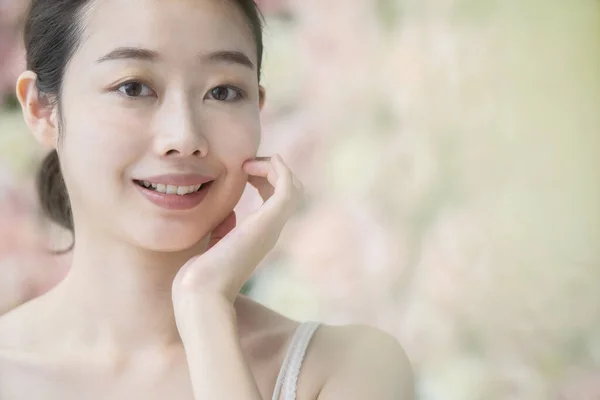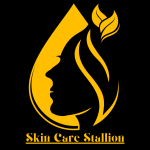In the ever-evolving world of beauty and skincare, one question continues to captivate enthusiasts and experts alike: Is Korean skincare better? This intriguing debate isn’t just about glossy packaging and exotic ingredients; it’s a cultural phenomenon that has reshaped global beauty standards.
Korean skincare, renowned for its innovative formulations and multi-step routines, promises a radiant, youthful complexion that seems almost too good to be true.
But does it truly outshine the skincare traditions of other nations, or is it simply the latest trend in a market driven by novelty? Let’s delve into the allure and efficacy of K-beauty to uncover whether it truly holds the secret to flawless skin.

Is Korean Skincare Better
Yes, Korean skincare is often considered better due to its innovative products, focus on natural ingredients, and extensive routines that promote healthy, glowing skin.
Known for its revolutionary formulations, Korean skincare emphasizes hydration, gentle exfoliation, and sun protection, which are essential for maintaining a youthful complexion.
With products like essences, ampoules, and sheet masks, Korean skincare offers a holistic approach that caters to various skin types and concerns. Additionally, affordability and accessibility make Korean skincare a popular choice globally.
Innovative Products and Formulations
Korean skincare is renowned for its innovative products and unique formulations. Terms like “BB cream,” “CC cream,” and “cushion compacts” originated from Korea, revolutionizing the beauty industry. Korean brands are pioneers in using cutting-edge technology and research to develop skincare solutions that address specific skin issues.
For instance, the introduction of snail mucin, bee venom, and fermented ingredients has set new standards in the skincare world. These products are designed to deliver active ingredients deeper into the skin, ensuring maximum efficacy.
Focus on Natural Ingredients
A key factor that sets Korean skincare apart is its emphasis on natural and gentle ingredients. Korean skincare products often incorporate botanical extracts, herbal ingredients, and traditional remedies known for their healing properties.
Ingredients like green tea, ginseng, rice water, and propolis are commonly found in Korean skincare routines. These components are not only effective but also minimize the risk of irritation and sensitivity, making them suitable for all skin types, including sensitive and acne-prone skin.
Extensive Skincare Routines
The famous multi-step Korean skincare routine is another reason for its popularity. This regimen typically includes steps such as double cleansing, toning, applying essences, serums, and moisturizers, and finishing with sunscreen.
Each step serves a specific purpose, from removing impurities and balancing the skin’s pH to providing deep hydration and protection. This comprehensive approach ensures that the skin receives thorough care, resulting in a radiant and healthy complexion.
Hydration and Gentle Exfoliation
Hydration is a cornerstone of Korean skincare. Products like hydrating toners, essences, and sheet masks are formulated to deliver intense moisture to the skin. The concept of “chok chok,” meaning dewy and plump skin, is central to Korean beauty ideals.
Additionally, Korean skincare favors gentle exfoliation methods, such as peeling gels and exfoliating pads, which remove dead skin cells without causing irritation. This helps maintain smooth, soft skin and enhances the absorption of subsequent skincare products.
Sun Protection
Sun protection is a critical aspect of Korean skincare. Korean sunscreens are praised for their lightweight, non-greasy textures and broad-spectrum protection.
They often contain skin-loving ingredients like niacinamide and hyaluronic acid, providing additional skincare benefits while protecting against UV damage. The daily use of sunscreen is emphasized in Korean skincare routines to prevent premature aging and skin damage.
Affordability and Accessibility
Korean skincare is also lauded for its affordability and accessibility. High-quality products are available at various price points, making it easy for consumers to find effective solutions without breaking the bank.
The global popularity of Korean skincare has led to widespread availability in both physical stores and online platforms, ensuring that people worldwide can access these sought-after products.
Historical Context
Korean skincare has a rich history that dates back centuries, deeply rooted in traditional practices and natural remedies. Early Korean skincare routines were influenced by herbal medicine, utilizing ingredients like green tea, rice water, and ginseng for their soothing and healing properties.
These ancient practices focused on maintaining healthy, radiant skin, reflecting the cultural belief that good skin is a sign of inner wellness and beauty.
As time progressed, traditional Korean skincare methods evolved, blending with modern science and technology. This fusion led to innovative products such as essences, serums, and sheet masks, which are now staples in contemporary skincare routines.
Modern adaptations of traditional practices continue to emphasize natural ingredients while incorporating advanced formulations to enhance effectiveness and cater to diverse skin needs.

Globalization of Korean Skincare
The rise of K-beauty in the global market is a phenomenon driven by the influence of Korean pop culture, including K-pop and Korean dramas.
As these cultural exports gained international popularity, they brought Korean skincare products and practices into the global spotlight. Fans of K-pop idols and drama stars, known for their flawless skin, became eager to adopt their beauty routines.
K-beauty is characterized by its innovative products, meticulous multi-step skincare routines, and emphasis on hydration and skin barrier health.
The global fascination with K-beauty has led to a surge in demand for Korean skincare products, making them widely available and highly sought after in beauty markets worldwide. The trend has also sparked a broader interest in Korean culture, further cementing Korea’s influence in the global beauty industry.
Core Principles of Korean Skincare
Korean skincare philosophy is rooted in a holistic approach, emphasizing overall skin health rather than quick fixes.
Prevention and maintenance are crucial, promoting long-term skin benefits over immediate but temporary results. The multi-step routine, often a 10-step process, reflects this philosophy by providing comprehensive care.
Holistic Approach to Skincare
The holistic approach in Korean skincare focuses on nourishing the skin from within and addressing underlying issues. This method prioritizes consistent, gentle care to maintain healthy, glowing skin. Keywords like “long-term benefits,” “skin nourishment,” and “gentle care” highlight this approach’s essence.
Emphasis on Prevention and Maintenance
Prevention and maintenance are foundational to Korean skincare. Daily routines aim to prevent damage and maintain skin health. Regular use of sunscreen, antioxidants, and hydrating products exemplifies this focus. Terms like “daily routine,” “skin health,” and “preventive care” are central to understanding this principle.
Multi-Step Routine
The multi-step Korean skincare routine is detailed and methodical. Here’s a breakdown of the typical 10-step process:
Oil Cleanser
Removes makeup and impurities.
Water-Based Cleanser
Cleanses any remaining residue.
Exfoliator
Gently removes dead skin cells.
Toner
Prepares skin for better absorption.
Essence
Hydrates and repairs skin.
Serum/Ampoule
Targets specific skin concerns.
Sheet Mask
Provides intense hydration.
Eye Cream
Delicate care for the eye area.
Moisturizer
Locks in hydration.
Sunscreen
Protects from UV rays.
Each step plays a vital role in ensuring skin receives comprehensive care. Terms like “10-step routine,” “skin hydration,” and “specific skin concerns” are essential here.

Comparison with Other Skincare Routines
When comparing skincare routines across different cultures, Western skincare stands out for its focus on active ingredients like retinol and AHAs, emphasizing clinical effectiveness and fast results.
In contrast, Japanese skincare emphasizes gentle, minimalist approaches with a strong emphasis on natural ingredients like green tea and rice extracts, promoting long-term skin health and hydration.
Japanese skincare techniques often draw comparisons with the elaborate multi-step routines of Korean skincare, which prioritizes layering products like essences and sheet masks for intensive hydration and brightening effects.


